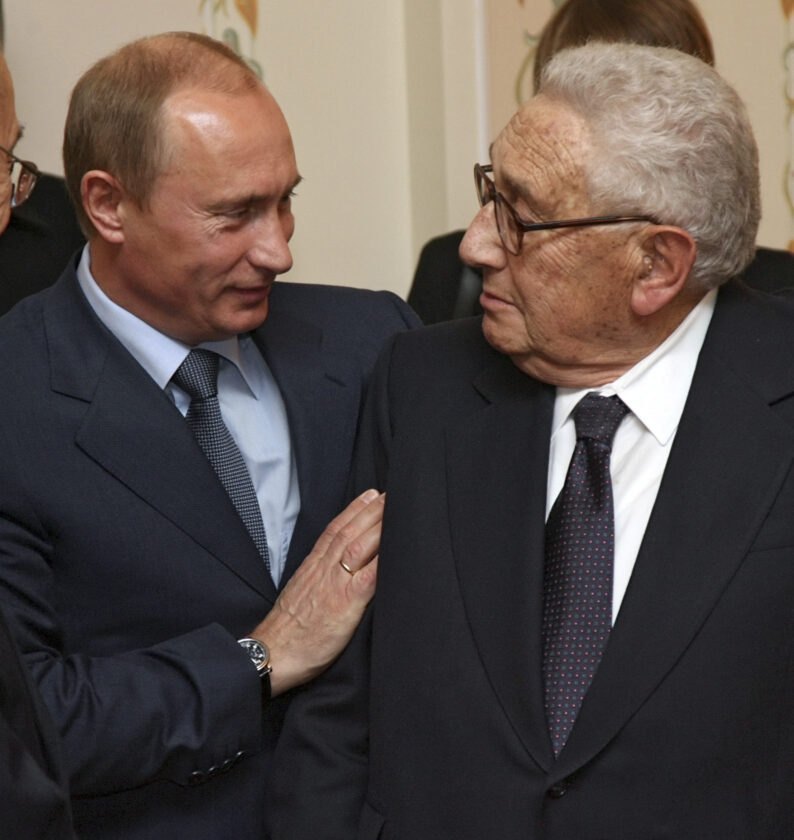
For more than 55 years, the world has lived by the rules created by Kissinger, among others. It was he, being the first National Security Advisor and Secretary of State under US President Nixon, who formed the Washington-Moscow-Beijing triangle. He also ensured that the authoritarian but oil-rich countries of the Middle East reoriented themselves towards the United States. It is significant that Kissinger died when his international order is undergoing tectonic changes, when Russia and China are already challenging the United States together, and some Middle Eastern monarchies are beginning to play against the Americans after Hamas's attack on Israel.
It was during Kissinger's time when the term "shuttle diplomacy" emerged. This is how observers described the way he negotiated with Middle Eastern leaders during and after the Yom Kippur War. Kissinger did the same when he was building ties with China or negotiating détente with the Soviet Union. He would arrange a meeting with the relevant representatives of a country on the territory of a third party and then hold discussions there that were almost unencumbered by diplomatic, legal or political frameworks. If successful, talks were planned between the leaders of states whose reputations had not suffered from Kissinger's covert actions.
Everyone won: American presidents, who then got along with the right states; dictatorships, which benefited from the agreements reached; and Kissinger himself, who got the most important bonus – contacts and information about how the world really works.
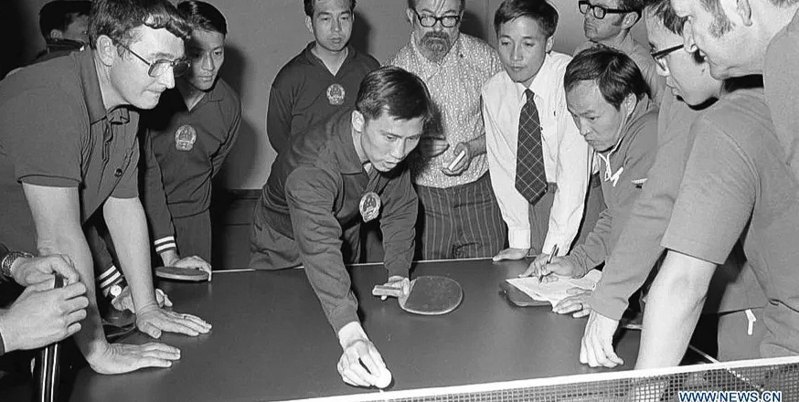
Many people probably remember the footage from the film Forrest Gump when the protagonist takes part in a ping-pong tournament. This episode has a specific historical parallel – a ping-pong competition between American and Chinese teams. It was organised with Kissinger's assistance, and thanks to it, China was able to export its goods, and the Americans brought Beijing out of isolation and allowed the dollar to circulate in the country. Mao Zedong, who feared an attack by the Soviet Union, met Nixon and Kissinger in Beijing in February 1972. Relations between the two countries, frozen for 22 years after the Communist takeover, were restored. At the same time, the Americans assured China that they would not support Taiwanese residents who wanted to declare independence.
Already in May 1972, Kissinger and Nixon arrived in Moscow, where they were met by General Secretary Brezhnev and his delegation, one member of which almost put the US president on a faulty plane – a Russian pilot warned the head of the White House at the last moment.
An important détente took place in Moscow. The parties agreed to reduce the number of nuclear warheads, determined the number of missile defence systems (a separate agreement) and different types of missiles that could be deployed in Europe (SALT I). And they signed the Basic Principles of Relations between the USSR and the United States, an important document that laid the foundation for many things. In particular, for the now-criticised OSCE and the signing (already in 1975) of the Helsinki Act, which eventually stirred up dissident and anti-communist movements in Moscow. Interestingly, from the US side, this comprehensive treaty between Nixon and Brezhnev was formulated exclusively by Kissinger, who negotiated it with the Soviet ambassador to Washington, Dobrynin.
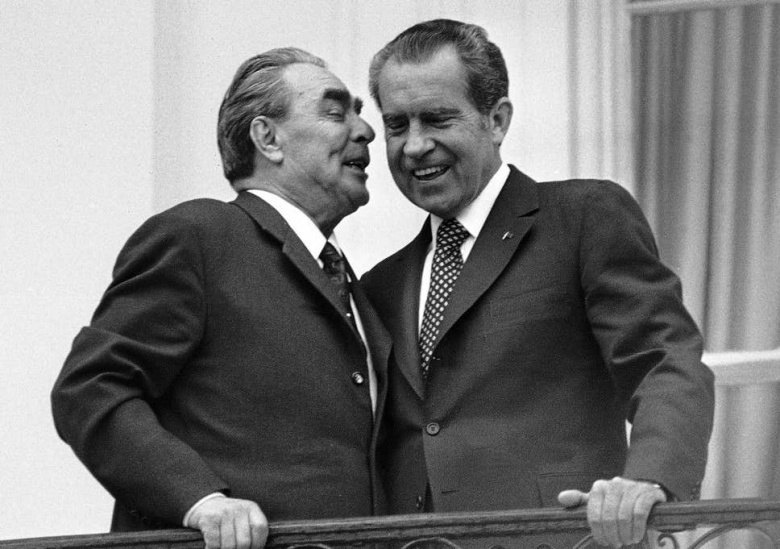
Everyone knows the term petrodollar, but few people remember that it was Henry Kissinger who coined it. In 1971, Nixon untied the dollar from the gold standard. At that time, the US currency had already become a reserve currency for many countries, but payments for the sale or purchase of energy resources, including oil, were sometimes made in the national currencies of other countries.
The Yom Kippur War of 1973 (Israel's fight against a coalition of Arab countries) led to a global economic crisis. Middle Eastern countries, including the Gulf, refused to supply oil to Israel and the United States. Prices quadrupled. When the conflict ended, Kissinger began negotiations with the region's autocratic leaders. As a result, an agreement was reached that changed the international economy: the dollar was pegged to oil, which was already black gold. Since then, the Gulf countries, especially Saudi Arabia, have been selling oil for US dollars, converting them into national currencies, and then investing the money in energy production. This gave a huge boost to the economies of both the USA and the Middle East. Moscow also benefited from this to some extent.
***
In Ukraine, and in the post-Soviet states in general, there is little understanding of what Kissinger meant by his definition of Realpolitik, a concept that was originally developed by Otto von Bismarck. It is usually said that Kissinger shared the same opinion as the first Reich Chancellor of the German Empire: a state's foreign policy should be pragmatic and realistic, based on strength and the desire to influence the decisions of other countries.
However, if we study not only his famous book Diplomacy, but also other works, and do not read them in Russian, we can understand that Kissinger was closer to the political philosophy of Cardinal Richelieu. The American diplomat believed that sometimes actions taken with good intentions can lead to tragic and negative consequences for states. The Minister of the Kingdom of France, Armand-Jean du Plessis de Richelieu, sought stability through a balance of power, even if it meant fighting for 30 years with opponents. Henry Kissinger, a supporter of this concept until the last days of his life, wanted the same thing.
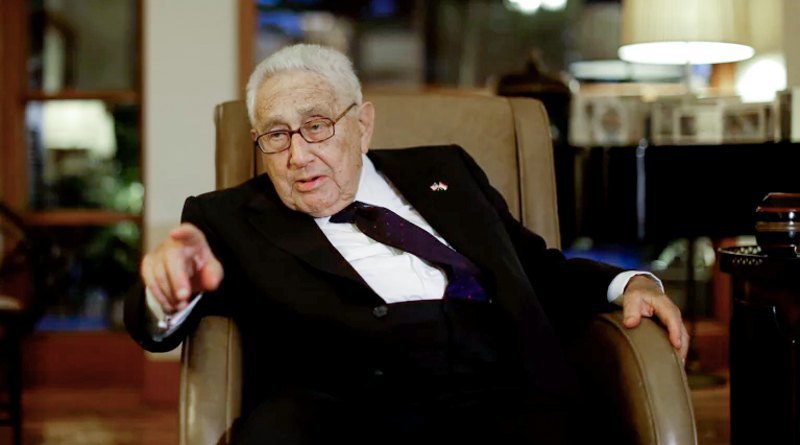
That is why this truly great American diplomat opposed the recognition of the independence of the Baltic states during the collapse of the Soviet Union. And that is why he did not want Ukraine to become part of NATO. Even in the last year of his life, when he was advising the leadership of our country and changed his position on Ukraine's membership in the Alliance, Kissinger did not want Russia to withdraw from Crimea.
He called this concept a model of "shared discontent", when Ukraine could not liberate all its territory but would be part of NATO, and Russia would keep Crimea and would not seek revenge. Moreover, Kissinger wanted Ukraine to become a member of the Alliance for a reason. He believed that this would allow NATO (i.e. the United States and, conditionally, Germany) to control Kyiv so that it would not want to take the Crimean peninsula by force later. Under this option, he argued, Putin would be overthrown and a new leader would come to power in Russia.
Kissinger was very afraid of Russia's collapse. Frankly speaking, he was not alone: many American think tanks are now thinking about what will happen if Russia collapses. These same people had the same discussions before the collapse of the USSR. The American diplomat understood that Russia was heading towards fascism and was afraid of this trend. But the key thing is that Kissinger did not understand who he was dealing with. He did not understand Vladimir Putin.
***
Henry Kissinger, of course, dealt with many diplomatic issues during the Nixon and Ford presidencies. But dictators were always his speciality. He could easily find a common language with them. He could go to Brezhnev and cut sausages to complement the vodka poured by the general secretary while hunting. He could joke during negotiations with communist Mao and say that he, an American diplomat, was sitting on the left hand of the right-wing president of the United States. Kissinger knew his way around all autocrats, but he made a mistake with Putin. The former secretary of state called the Russian president a character from Dostoevsky's novels who doubts the Russian people. However, and this was Kissinger's key mistake, he did not understand that Putin did not doubt the KGB system.
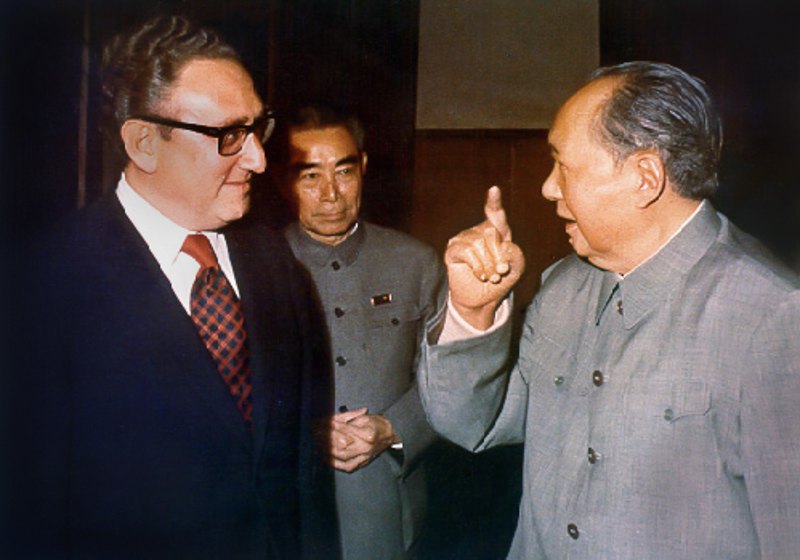
A former friend, the head of the Russian Foreign Intelligence Service and former first deputy head of the USSR KGB, General Yevgeny Primakov, would have helped him understand this. Kissinger met him during the Cold War, somewhere between the Middle East front and various platforms for US negotiations with the Soviet Union. Before and after Primakov's death, the American diplomat visited Russia almost every year, speaking at "readings" dedicated to the former head of Russian intelligence. And then he admitted that he missed his old friend when he passed away.
Primakov, who headed the Russian government under Yeltsin and almost became the "heir apparent", the president of Russia, knew very well how the KGB, from which he had come, worked. And he actually created the current system of the Russian Foreign Ministry, as well as the intelligence service of modern Russia. Primakov wanted power, he wanted to remove the "family" from the flows - Yeltsin's inner circle, his oligarchs, he fought against them and the communists, he had wealthy allies, such as the former mayor of Moscow, Yuri Luzhkov, but he still dreamed of restoring the Soviet era.
But Putin wanted something completely different: to bring money to the KGB, first in Leningrad (St Petersburg), selling everything from submarines to rare earth metals and casino tickets, and then in Moscow. Kissinger did not understand that Putin was always concerned with cash and the reliable operation of the state security system, the KGB. He was not a man who thought in big categories, as Kissinger was used to. The American diplomat did not understand that there was no democracy in Russia, that the entire parade was run by the national security agencies, which had once bet on Primakov and Putin. That the KGB had won in Russia.
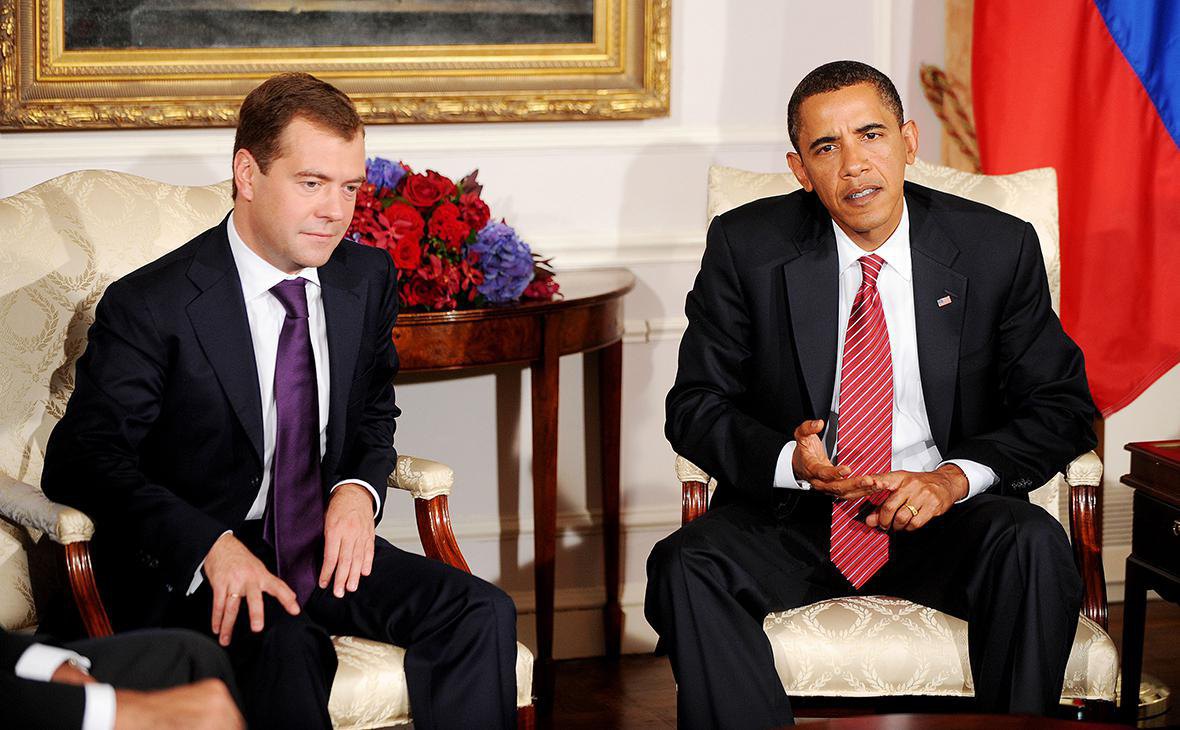
That's why Kissinger arranged all these meetings of friendship between the USA and Russia, and why he and Primakov – oh, my! – organised the talks between Medvedev and Obama after Russia's war against Georgia. The American diplomat campaigned for a reset in relations between Washington and Moscow. He was also a mediator during discussions in the Oval Office when President Trump received the foreign ministers of Russia and Ukraine, Lavrov and Klimkin.
We will never know whether Kissinger was wrong or playing his own game, but he did do two important things before his death. First, he helped organise a meeting between President Zelenskyy and top bankers and directors of powerful US corporations. There, the diplomat voiced his vision of how to communicate with the West about Russia. He also helped President Joe Biden secure the visit of Chinese President Xi Jinping to San Francisco. It was Henry Kissinger who held separate talks with the Chinese leader and persuaded him to abandon the heated confrontation.
The Kissinger model, which had existed for 55 years, has failed. Putin has said that the Ukrainian and Belarusian peoples are part of the so-called Russian civilisation, and that the "Russian world" should include all the territories that once belonged to the Russian Empire and the USSR. This, of course, symbolises the only thing – Moscow is unwilling to negotiate, its goals have not changed, and it still wants to destroy Ukraine as a state.
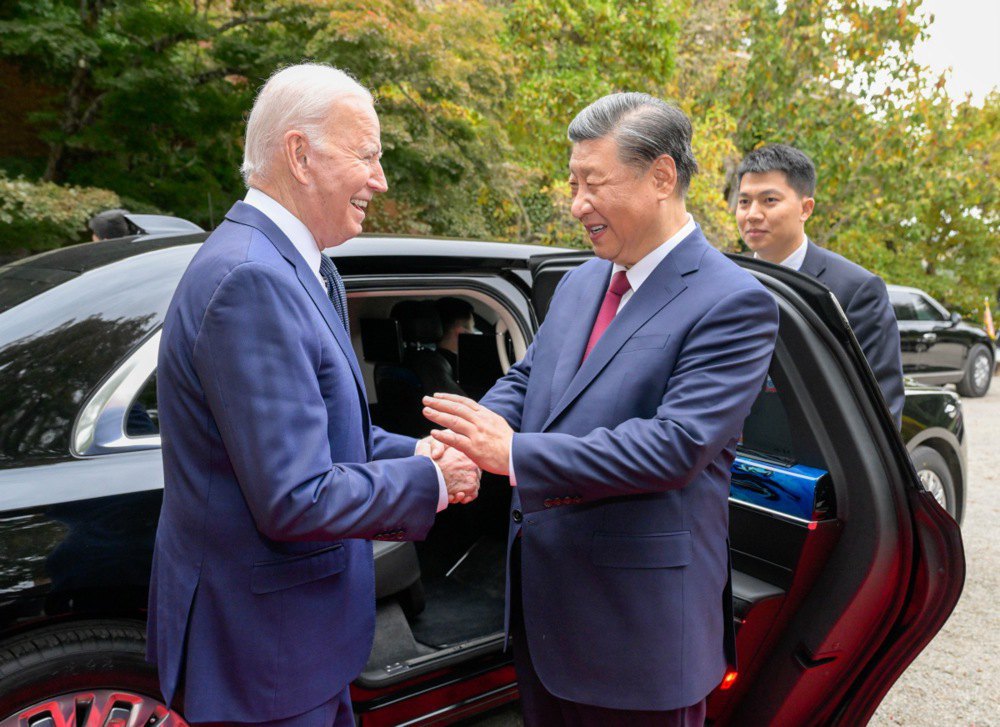
After the talks in San Francisco, Chinese warships pushed the US destroyer Hopper out of the South China Sea, which for some reason is considered China's property, demonstrating to the United States that the scenario of open confrontation has not disappeared.
The great diplomat Henry Kissinger has passed away, and with him the global system that he and his followers had been constructing for a long time has finally disappeared.








